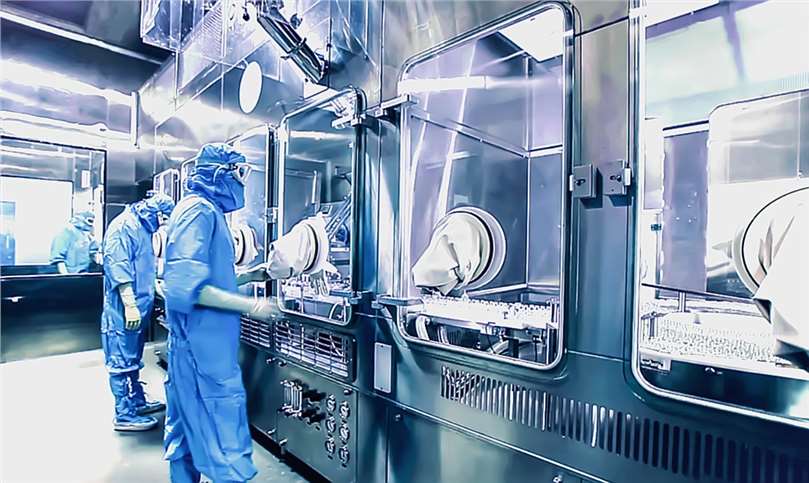Genetic Stability Testing (Locus Amplification & Sequencing + ddPCR)
Genetic stability testing is a crucial component in the characterization of production cell banks and is mandated by regulatory authorities. Mammalian production cell lines are commonly established through the stable transfection of the expression vector into the host cell line. Nevertheless, genetic alterations, such as deletions, rearrangements, and mutations, may arise during cell culture, resulting in modifications to cell behavior and gene expression. The instability of cell lines is a significant cause for concern as it has the potential to impact the quality of products and pose risks to patients. Even in cases where product quality is not immediately compromised, reduced productivity and an increased likelihood of future issues remain worrying from an operational perspective.
Genetic stability testing entails a variety of assessments usually performed on the master cell banks (MCB) and a batch of end-of-production cells (EOPC) from a manufacturer. Furthermore, genetic stability testing of the working cell banks (WCB) may also be conducted at the manufacturer's discretion. Through comparing the results of the EOPC and WCB with those of the MCB, any deviations indicating potential instability in the cell line can be detected.
With many years of experience and in-depth knowledge, Creative Bioarray offers Genetic stability Testing ((Locus Amplification & Sequencing + ddPCR) for you. We guarantee the speed, quality and cost of our service.

Techniques Available:
Creative Bioarray offers the efficient techniques available for evaluating the stability of cell lines throughout the cell line development process, including:
Measuring the integrity of the product transcript:
- Transgene Mapping (Locus Amplification & Sequencing)
- mRNA/cDNA sequencing
Identifying the genomic structure at the integration site
- Transgene Mapping (Locus Amplification & Sequencing)
Measuring the ratio of insert gene copy number relative to host genome
- ddPCR
Determining transcript size
- Transgene Mapping (Locus Amplification & Sequencing)
The approach to genetic analysis and stability testing may differ based on the production setup and project stage. Our regulatory specialists can offer support to help align your program with regulatory standards.
Frequently Asked Questions (FAQ)
1. What is genetic stability testing?
Genetic stability testing is a process that assesses the consistency of specific gene loci across different conditions and over time. This test is crucial for ensuring the reliability of gene therapy and genetically modified organisms (GMOs), helping to guarantee their safety and efficacy in various applications.
2. What is locus amplification sequencing?
Locus amplification sequencing is a specialized technique that selectively amplifies target gene loci and sequences them to evaluate their status and potential variations. This method is essential for detecting single nucleotide changes, insertions, deletions, and other genetic alterations.
3. What is ddPCR and how does it work?
Digital Droplet Polymerase Chain Reaction (ddPCR) is an innovative and highly sensitive method for quantifying specific DNA sequences. By partitioning a sample into thousands of droplets, ddPCR enables the precise detection and quantification of low-abundance targets, making it ideal for assessing genetic stability.
4. Why is genetic stability testing important?
Conducting genetic stability testing is vital for confirming the safety and effectiveness of gene therapies and modified organisms. It ensures that these products maintain consistent performance, reducing the risks associated with genetic changes during research and development, as well as in clinical applications.
5. How long does genetic stability testing take?
The total duration depends on the complexity of the project and the specific tests involved. Typically, from sample receipt to results delivery, you can expect a timeframe of a few weeks to a couple of months. For a more precise estimate, please contact our team directly!
6. How can I submit my samples for testing?
Submissions are easy! Please contact our customer service team to receive a comprehensive guide on sample submission. We will provide all necessary shipping and handling instructions to ensure your samples remain stable throughout the process.
7. What information will I receive from the test results?
Our detailed test results will provide insights into the stability of the gene loci, types and locations of genetic variations, and their potential implications. Armed with this data, you'll be better equipped to evaluate the quality and reliability of your products.
8. Do your testing methods comply with industry standards?
Yes! Our genetic stability testing employs methodologies that adhere to internationally recognized research and clinical standards. We implement rigorous quality control measures to ensure the accuracy and reliability of all results.
9. Who can I contact if I have more questions?
We're here to help! If you have additional questions or need further assistance, feel free to reach out through our website or get in touch with our customer support team. We look forward to assisting you with your genetic stability testing needs!
Quotation and ordering
Our customer service representatives are available 24hr a day! We thank you for choosing Creative Bioarray at your preferred Genetic Stability Testing (Locus Amplification & Sequencing + ddPCR).
Explore Other Options